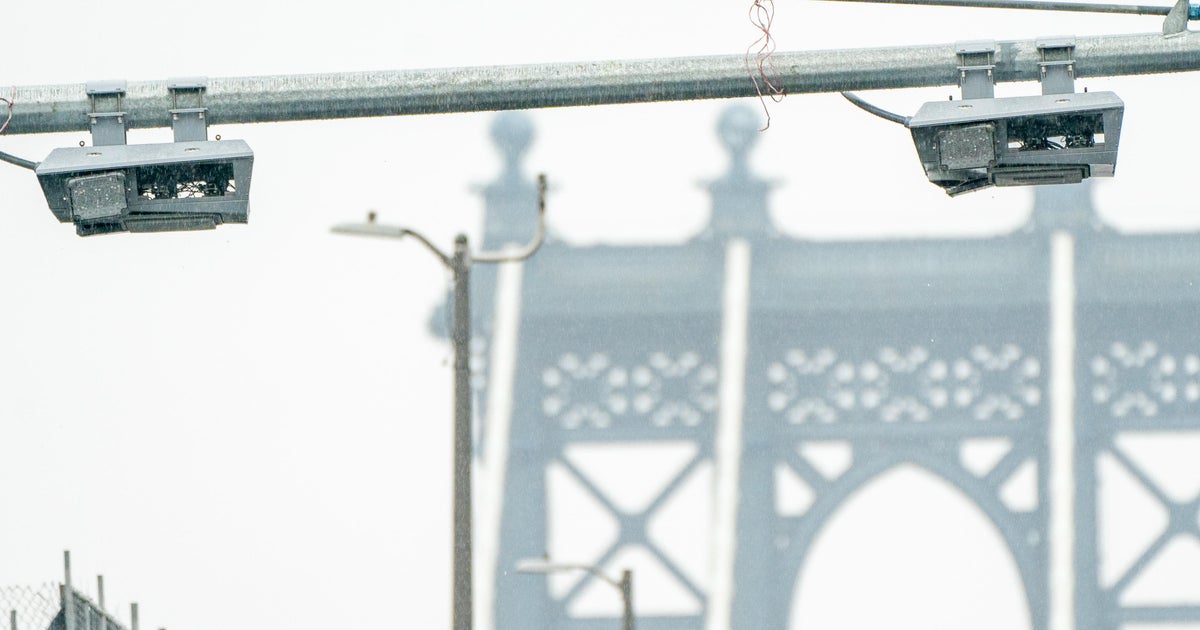NYC Woman At Center Of DOMA Case Hopeful Outcome Is 'Going To Be Good'
WASHINGTON (CBSNewYork/AP) -- Concluding two days of intense debate, the U.S. Supreme Court signaled Wednesday it could give a boost to same-sex marriage by striking down the federal law that denies legally married gay spouses a wide range of benefits offered to other couples.
As the court wrapped up its remarkable arguments over gay marriage in America, a majority of the justices indicated they will invalidate part of the federal Defense of Marriage Act -- if they can get past procedural problems similar to those that appeared to mark Tuesday's case over California's ban on same-sex marriage.
Since the federal law was enacted in 1996, nine states and the District of Columbia have made it legal for gays and lesbians to marry. Same-sex unions also were legal in California for nearly five months in 2008 before the Proposition 8 ban.
Justices heard arguments Wednesday in a New York City woman's case that challenges the constitutionality of the Defense of Marriage Act.
Edith Windsor, 83, sued the federal government after she was forced to pay $363,053 in estate taxes when her partner of 44 years, Thea Spyer, died in 2009 because DOMA didn't recognize their marriage even though the state of New York did.
Windsor married Spyer in 2007 in Canada after doctors told them that Spyer would not live much longer. She suffered from multiple sclerosis for many years. Spyer left everything she had to Windsor.
"In the midst of my grief, I realized the federal government was treating us as strangers," Windsor told reporters outside the Supreme Court on Wednesday.
DOMA says marriage may only be a relationship between a man and a woman for purposes of federal law, regardless of state laws that allow same-sex marriage.
It affects a range of benefits available to married couples, including tax breaks, survivor benefits and health insurance for spouses of federal employees.
Justice Anthony Kennedy, often the decisive vote in close cases, joined the four more-liberal justices in raising questions Wednesday about a provision that defines marriage as the union of a man and a woman for purposes of federal law.
It affects more than 1,100 statutes in which marital status is relevant, dealing with tax breaks for married couples, Social Security survivor benefits and, for federal employees, health insurance and leave to care for spouses.
As CBS 2's Randall Pinkston reported, some of the more liberal justices said the law appears to create two classes of marriage.
After hearing arguments Wednesday morning, Justice Kennedy said the law appears to intrude on the power of states that have chosen to recognize same-sex marriages. Other justices said the law creates what Justice Ruth Bader Ginsburg called two classes of marriage, full and "skim-milk marriage.''
Kennedy said the Defense of Marriage Act appears to intrude on the power of states that have chosen to recognize same-sex marriages. When so many federal statutes are affected, "which in our society means that the federal government is intertwined with the citizens' day-to-day life, you are at real risk of running in conflict with what has always been thought to be the essence of the state police power, which is to regulate marriage, divorce, custody,'' Kennedy said.
There is no dispute that if Windsor had been married to a man, her estate tax bill would have been zero.
"For anybody who doesn't understand why we want it and why we need it, it is magic," Windsor said.
NYC Woman At Center Of DOMA Case Hopeful Outcome Is 'Going To Be Good'
The 83-year-old told reporters that the country's already come a long way.
"I'm talking to you freely. I'd have been hiding in the closet 10 years ago," Windsor said.
She said there was no hostility from the Justices.
"We were very respected and I think it's going to be good," Windsor added.
Overall, Windsor seemed optimistic about her challenge to the Defense of Marriage Act.
"I think I think it's going to be good," she said.
Same-sex marriage is legal in nine states and the District of Columbia. The states are Connecticut, Iowa, Maine, Maryland, Massachusetts, New Hampshire, New York, Vermont and Washington.
In October, a federal appeals court in Manhattan upheld a lower court judge who ruled that DOMA was unconstitutional, saying it violates equal protection.
"We are very hopeful they (the Supreme Court) will affirm the decision of the courts below," Windsor's lawyer Roberta Kaplan Wednesday.
The motivation behind the 1996 federal law, passed by large majorities in Congress and signed by President Bill Clinton, was questioned repeatedly by Justice Elena Kagan.
She read from a House of Representatives report explaining that the reason for the law was "to express moral disapproval of homosexuality.'' The quote produced an audible reaction in the courtroom.
U.S. Supreme Court Hears Arguments On DOMA
Meanwhile, one of the most conservative justices on the bench Antonin Scalia questioned Windsor's attorney Roberta Kaplan during oral arguments.
SCALIA: "How many states permit gay couples to marry?"
KAPLAN: "Today, nine, your honor."
SCALIA: "Nine. And so there's been this sea change."
KAPLAN: "I think with respect to the understanding of gay people and their relationships, there has been a sea change, your honor."
Kaplan said the justices "asked all the right questions" and said she thinks the outcome of the case is "going to be good."
It still is possible the court could dismiss the case for procedural reasons, though that prospect seemed less likely than it did in Tuesday's argument over gay marriage in California.
Whatever the outcome, Windsor said the national attention of her case has been "overwhelming."
"Today is a spectacular event for me and I know the spirit of my late spouse Thea is watching and listening," she said.
Lower courts did agree with Windsor and she would likely still get her refund if the Supreme Court dismisses the case.
A smaller group of supporters and opponents rallied outside the Supreme Court on Wednesday. Among them was Fred Phelps Jr. of the Westboro Baptist Church -- the group that has gained infamy for protesting funerals and using the slogan, "God hates f**s."
"In the beginning, God made them male and female. Have you not read that? This is not complicated," Phelps told CBS 2's Pinkston.
The Rev. Robert Schenck represents clergy who work for the government, and he worries that without DOMA, ministers won't be able to do their jobs.
"Their religious freedom may be restricted here, by being forced to acknowledge a definition of marriage they cannot accept religiously," said Schenck, of the Evangelical Church Alliance.
A decision is not expected until June.
Reflecting the high interest in the cases, the court released an audio recording of Wednesday's argument, just as it did Tuesday.
Please share your thoughts below...
(TM and © Copyright 2013 CBS Radio Inc. and its relevant subsidiaries. CBS RADIO and EYE Logo TM and Copyright 2013 CBS Broadcasting Inc. Used under license. All Rights Reserved. This material may not be published, broadcast, rewritten, or redistributed. The Associated Press contributed to this report.)



